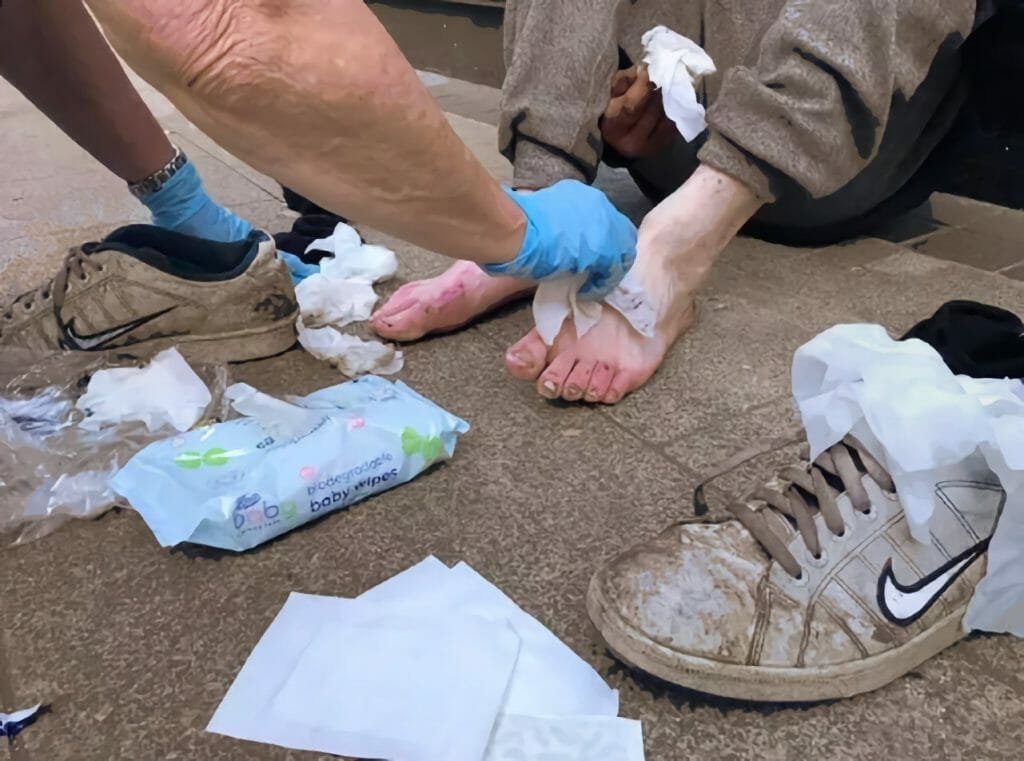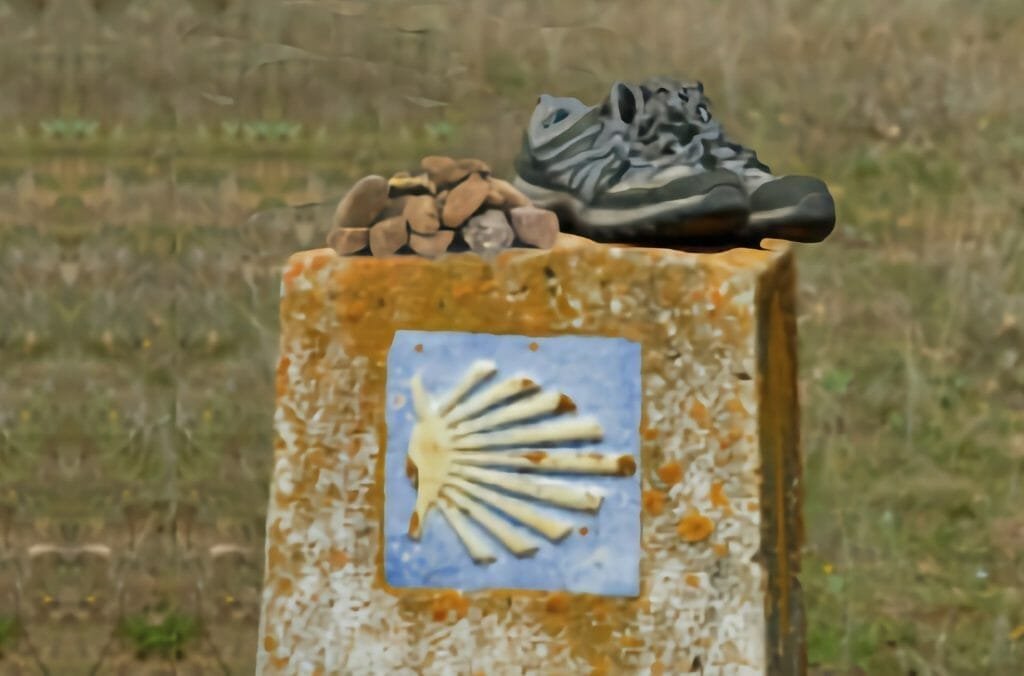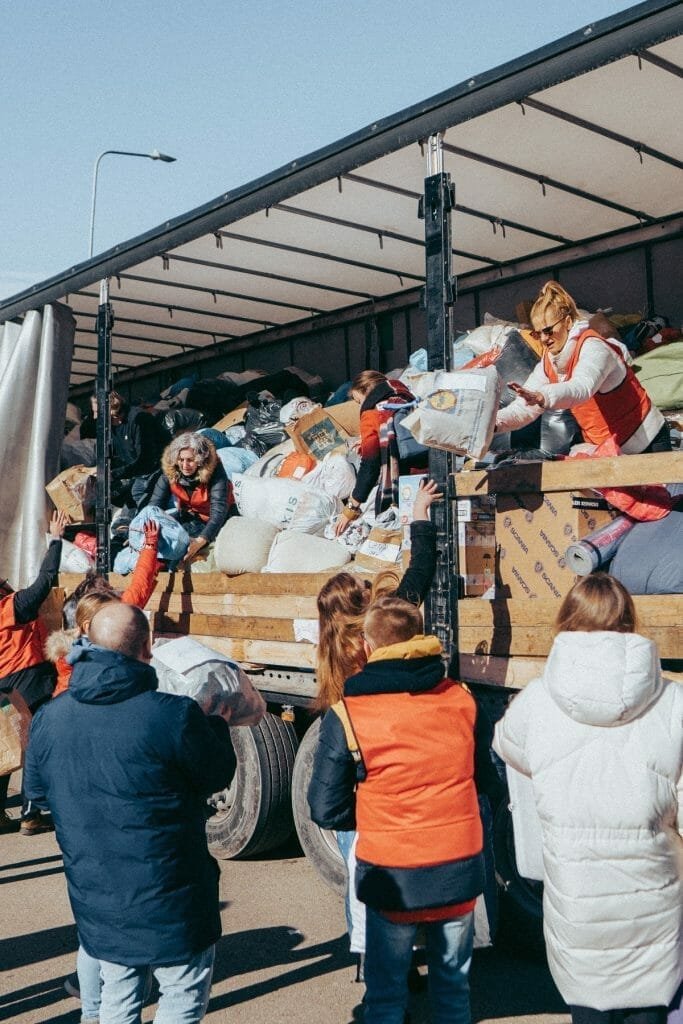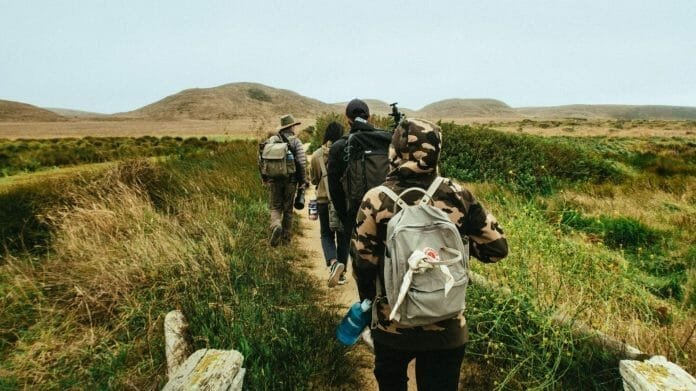Spain’s famous pilgrimage trail, El Camino de Santiago has become one of the world’s most popular walking holidays and spiritual journeys.
Every year, pilgrims travel from all over the world to journey on the well marked routes that all end at the cathedral in Santiago de Compostela.
Originally the faithful walked the trail to see the legendary remains of the Apostle Saint James. In the Middle Ages, pilgrims walked the Camino as a way to reduce the punishment for their sins. Soldiers walked the Camino as a way to repent for the lives they have taken in battle.
Today people walk the Camino for as many different reasons as there are pilgrims. Most years, around 55,000 pilgrims will lace up their walking boots, start pedaling, or spur their horse along one of the pilgrimage trails.
For many, it is a journey of faith. One of the many traditions of the faithful along the Camino is for them to bring a stone from home and leave it behind at the Cruz de Ferro to symbolize leaving behind their sins.
For others it is a journey for self awareness, and for some it is a much needed escape from the rat race. Some pilgrims bring more than one stone and leave them along the way to symbolize releasing fears, conquering self, and leaving their mark on the way. For all who travel the Camino, it is a journey that will challenge them in ways they never imagined.
Pilgrims, known locally as ‘peregrinos,’ are given a pilgrim passport when they start their journey. All along the way, pilgrims are given stamps to show how far they have walked and which path they took.
Albergues [Al-bur-Ges] de Camino are inexpensive or free hostels along the Camino way. These hostels are run by ‘Hospitaleros’ (Camino volunteers). Pilgrims walking the way can stay for free or little cost by showing their pilgrim passport.

Amigos de Camino, or friends of the way, help pilgrims along the way. From passing out water and treating blisters at aid stations, to running free hostels and cooking dinners to feed pilgrims, amigos are a crucial part of the Camino.
Many amigos are pilgrims who have walked the way previously and are willing to share their knowledge and experience to help ease the way of others. Some amigos are villagers, who live in the areas along the way and simply cannot see so many pilgrims pass by their homes without wanting to reach out to them with love and compassion.
Like the pilgrims along the Camino de Santiago, we are all walking on our own pilgrimage through this life.
Some of our walks take us over mountains, across plains, through forests or down the steepest of canyons. Other walks take us along sandy beaches, through salty waves, along country lanes or on city streets. Each of us is walking. Each of us has much we need along the way and each of us has much to give others along their way.
One veteran of the Camino said, “The journey to the towering Cathedral in Santiago del Compostela will change you. However, it won’t necessarily be the destination that shakes your soul, but the entire journey you took to reach it, and the people you take the journey with. They will enliven and enrich the journey. They will help you put one foot in front of the next when you don’t think you can. They will be the greatest treasure you take home with you when your pilgrimage is complete.”

The ‘amigos’ we meet along our pilgrimage through this life can be a great treasure to us, just as we can be to them. There are so many examples that we can follow from the Camino.
“Throughout the years, we’ve been hosts to those who come to our hostels every day while walking along the Camino de Santiago,” host of a pilgrim’s hostel, Begoña said. “They may enter a stranger, but they leave a friend.”
We can bring that Camino hospitality to our community by going out of our way to make every fellow pilgrim we meet a friend, to welcome new neighbors and open our hearts and homes to new people. A man named Javier who runs a business dedicated to transporting pilgrims’ luggage from one town to the next along the way, said that he hopes to lighten the load of others.
“We hope pilgrims can do the Camino with the only weight on their shoulders being the satisfaction they feel with every step they take,” Javier said.
What kind of baggage are our fellow pilgrims carrying through life? Can we help lighten it for them? Even for a few moments, when we look to lighten another’s load, we free them to enjoy their walk along the way.
José, who owns a store that supplies pilgrims along the way, said that serving others is rewarding.
“Attending to the needs of pilgrims who travel from a few days to several weeks is varied and unpredictable, but it is always rewarding to see a pilgrim achieve their goals because we helped in even the smallest way,” he said.

What supplies can we help fellow pilgrims with? Are you a good gardener? Can you help a neighbor make repairs around their home? Are you a good listener? Do you enjoy reading and discussing books together? Can you give encouragement to a stressed out friend?
Often the “supplies” our fellow pilgrims need are not something they can find on a shelf; they are things that can only be shared, face to face.
Virginia works at a construction company that works to maintain the roads of the Camino de Santiago. And just as Virginia’s company makes the way smoother for pilgrims along the Camino, we can make the road smoother for our fellow pilgrims and weary travelers by removing rocks and other road blocks from their way.
“Blisters are inevitable, no matter how prepared you think you are, they will happen. It is still frustrating when they slow you down,” said one Camino veteran. “But, seeing someone else soften their pace to stay with you or having them sling off their pack to grab a bandaid for you means more than words can describe. Even if you have your own bandaids, theirs are given with so much love, they make you heal faster.”
We have no idea what blisters or fellow pilgrims may be experiencing, what supplies they might need or if they are struggling to keep putting one foot in front of the other.
You can become an amigos de camino for them and in return, you will gain a friend, a neighbor and a fellow pilgrim to help lighten your load some time, when you need them most.
Pilgrims come from many different countries and speak dozens of languages. On a journey that can take from two to six weeks, you might expect to hear “good luck” in many languages. (“bonne chance”, “Kali tychi” or “pop lwc”) But not along the Camino de Santiago, instead pilgrims and amigos alike greet each other and bid each other farewell with a promise that we too can give each other… “Buen camino” – “Good Way”
Submitted by Lorene Moore


